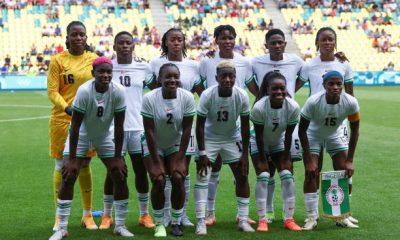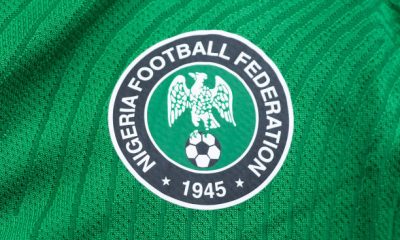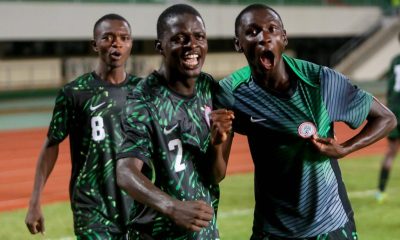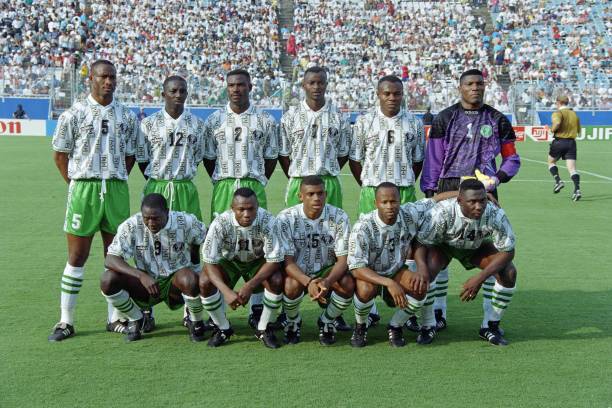
Nigerian Football History: A Detailed Guide
Nigerian football, particularly the national team known as the Super Eagles, has a rich and storied history that spans over seven decades. From humble beginnings to becoming one of Africa’s most successful teams, the Super Eagles have evolved significantly over the years. This journey is marked by numerous milestones, including their transformation from the “Red Devils” to the “Green Eagles” and finally to the “Super Eagles.”
In this article, we will delve into the Nigerian football history, exploring how the Super Eagles rose to become a continental power.
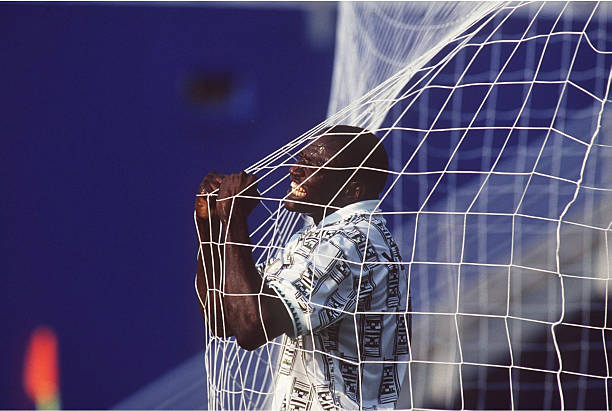
Early Years: The Formation and Evolution
The Nigerian national football team was formed in 1949 by the Nigerian Football Association (NFA), now known as the Nigeria Football Federation (NFF). Initially, the team was composed of talented players discovered through the All Nigerian Governor’s Cup. During this period, they were known as the “Red Devils,” a name inspired by their striking red jerseys. The Red Devils represented Nigeria in various matches across Africa, laying the foundation for what would become one of Africa’s most successful national teams.
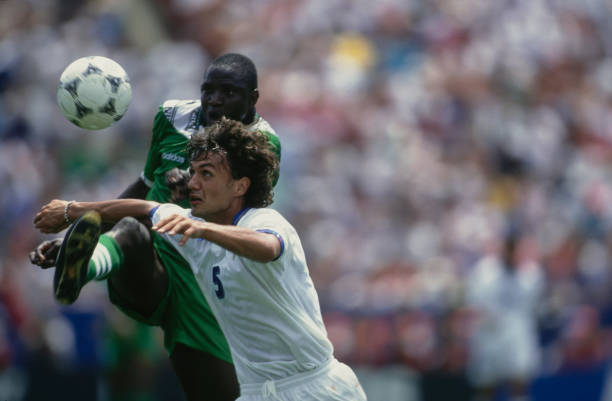
By the mid-1950s, the team had gained recognition for their impressive performances. However, it wasn’t until Nigeria gained independence on October 1, 1960, that the national team underwent a significant transformation. The Red Devils were rebranded as the “Green Eagles,” reflecting the colors of the Nigerian flag and the eagle on the national coat of arms. This change symbolized a new era for Nigerian football, aligning the team’s identity with the nation’s sovereignty.
The Green Eagles Era
The Green Eagles made their debut in the African Cup of Nations (AFCON) in 1963. Although their first appearance was marked by a sixth-place finish, this was just the beginning of their journey. The team’s performance improved steadily, culminating in their first AFCON title in 1980. Hosted in Nigeria, the Green Eagles defeated Algeria 3-0 in the final at the National Stadium in Surulere, Lagos.
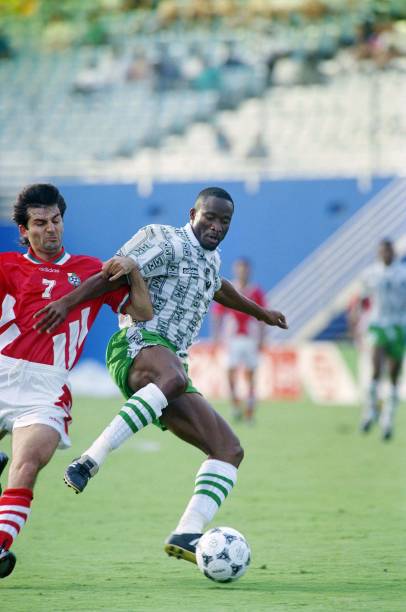
The 1980s were a pivotal period for Nigerian football. Despite experiencing setbacks, such as narrow defeats by Cameroon in the AFCON finals of 1984 and 1988, these losses fueled a rivalry between Nigeria and Cameroon that persists to this day. The 1988 AFCON final, in particular, was marked by controversy, further intensifying the rivalry.
SUGGESTED FOR YOU
Meet the 11 Highest-Paid Footballers in Nigeria (2025)
1973 All-Africa Games: A Landmark Victory
A significant milestone was achieved in 1973 when Nigeria hosted the 2nd All-Africa Games in Lagos. The Green Eagles clinched the gold medal, signaling their potential on the continental stage. This victory was instrumental in boosting the nation’s footballing morale and laid the groundwork for subsequent achievements.
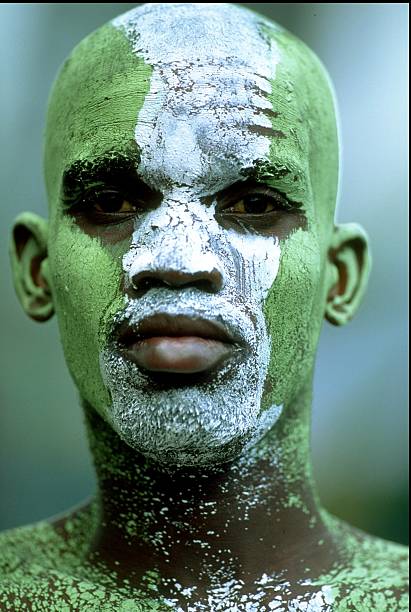
1980 AFCON Triumph: Nigeria’s First Continental Crown
The pinnacle of Nigeria’s early footballing endeavors was realized in 1980 when the country hosted the AFCON tournament. Under the guidance of Brazilian coach Otto Glória, the Green Eagles showcased exceptional talent and teamwork. The final match against Algeria saw Nigeria emerge victorious with a 3-0 scoreline, securing their first AFCON title. This squad featured legendary players like Christian Chukwu, Segun Odegbami, and Muda Lawal, who became national heroes.
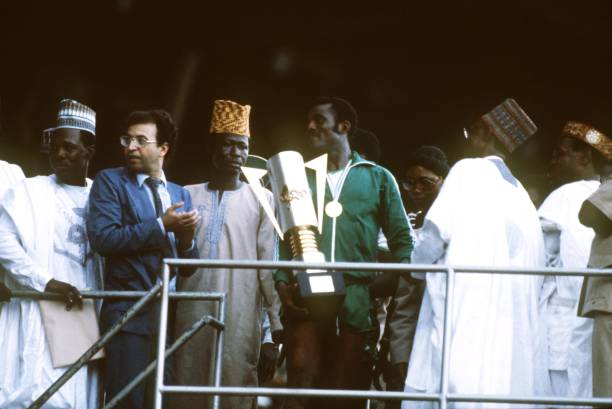
Transition to the Super Eagles and the 1994 Golden Era
The late 1980s and early 1990s marked a transformative period for Nigerian football. The national team rebranded from the Green Eagles to the “Super Eagles,” symbolizing heightened aspirations and a new era of excellence. Dutch coach Clemens Westerhof took the helm in 1989, bringing a strategic vision that would propel the team to unprecedented heights.
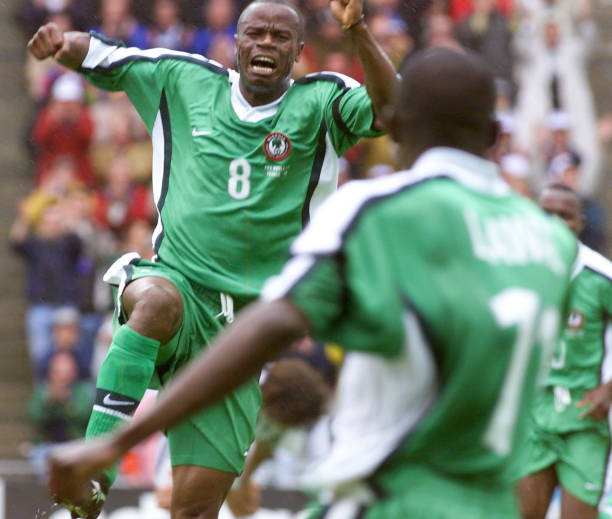
In 1994, the Super Eagles achieved a remarkable double feat. They clinched their second AFCON title in Tunisia, defeating Zambia 2-1 in the final. Striker Rashidi Yekini emerged as the tournament’s top scorer, epitomizing Nigeria’s attacking prowess. Later that year, Nigeria made its debut in the FIFA World Cup held in the USA. The team topped their group, which included Argentina, Bulgaria, and Greece, and advanced to the Round of 16. Although they were narrowly defeated by Italy in extra time, their performance earned global admiration and signaled Nigeria’s arrival on the world stage.
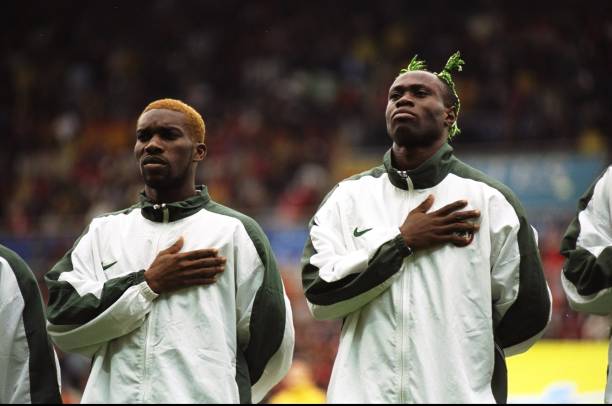
1996 Olympic Glory: A Historic Achievement
The momentum continued at the 1996 Atlanta Olympics, where Nigeria’s U-23 team, often referred to as the “Dream Team,” made history by winning the gold medal in men’s football. This achievement was groundbreaking, as Nigeria became the first African nation to claim Olympic gold in football. The team displayed resilience and skill, notably defeating football powerhouses Brazil and Argentina in the semifinals and finals, respectively. Players like Nwankwo Kanu, Jay-Jay Okocha, and Daniel Amokachi became international sensations, embodying the spirit and talent of Nigerian football.
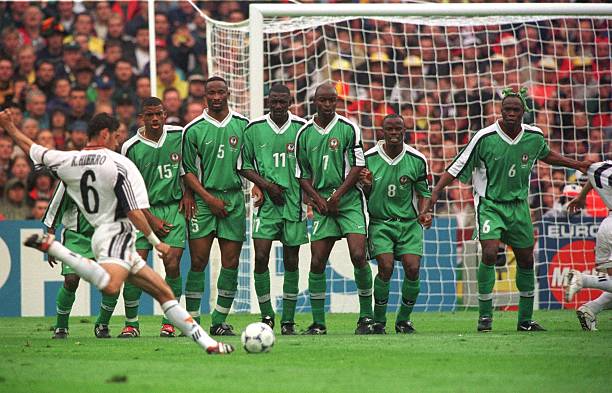
Consistent AFCON Performances and the 2013 Resurgence
Following their 1994 success, the Super Eagles maintained a strong presence in AFCON tournaments. They reached the finals in 1984, 1988, 1990, and 2000, finishing as runners-up on each occasion. Additionally, they secured third-place finishes in 1992, 2002, 2004, 2006, and 2010, underscoring their consistent competitiveness.

The year 2013 marked a significant resurgence for Nigerian football. Under the leadership of coach Stephen Keshi, who had captained the 1994 squad, the Super Eagles clinched their third AFCON title in South Africa. The team exhibited a blend of experienced players and emerging talents, defeating Burkina Faso 1-0 in the final. This victory reaffirmed Nigeria’s status as a football powerhouse and showcased the depth of talent within the nation.
World Cup Endeavors and the Quest for Global Recognition
Nigeria’s World Cup journey has been marked by moments of brilliance and challenges. Since their debut in 1994, the Super Eagles have qualified for six FIFA World Cup tournaments: 1994, 1998, 2002, 2010, 2014, and 2018. They reached the Round of 16 in 1994, 1998, and 2014, showcasing their ability to compete at the highest level. Notably, in 1998, Nigeria secured a memorable 3-2 victory over Spain, highlighting their potential to challenge football’s elite.

Current Squad and Coaching
As of the 2025 AFCON qualifiers, the Super Eagles are led by coachEric Chelle. The squad includes a mix of experienced players and young talents, such as Victor Osimhen, Ademola Lookaman, and William Troost-Ekong.
Impact on Global Football
Nigerian football has had a profound impact on the global stage. The Super Eagles have produced legendary players like Rashidi Yekini, Jay-Jay Okocha, and Nwankwo Kanu, who have inspired generations of footballers. Today, Nigerian players continue to excel in top European leagues. Victor Osimhen, for instance, was named African Player of the Year in 2023, while Ademola Lookman followed in 2024.
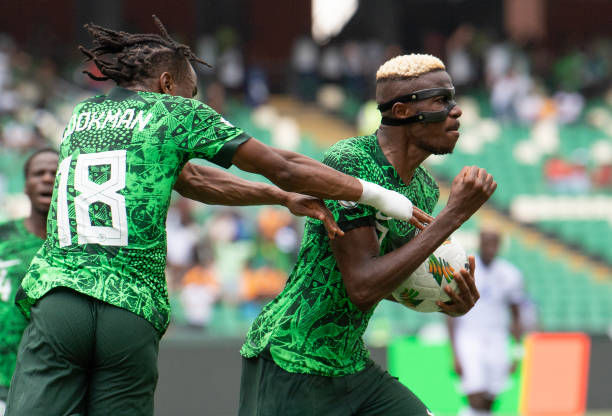
The Nigerian football history is a testament to the country’s passion for the sport and its ability to produce talented players who have made significant contributions to the global football scene. From their early days as the Red Devils to their current status as the Super Eagles, the team has evolved into a continental powerhouse. As they strive for future successes, including a fourth AFCON title and qualification for the 2026 World Cup, the Super Eagles remain a symbol of Nigerian pride and resilience.
Timeline of Major Events in Nigerian Football History
- 1949: The Nigerian national football team is formed by the Nigerian Football Association.
- 1950s: Known as the Red Devils, the team plays in various African matches.
- 1960: Nigeria gains independence, and the team is rebranded as the Green Eagles.
- 1963: The Green Eagles debut in the African Cup of Nations.
- 1980: The Green Eagles win their first AFCON title.
- 1988: The team is rebranded as the Super Eagles.
- 1994: The Super Eagles win their second AFCON title and make their World Cup debut.
- 2013: The Super Eagles win their third AFCON title.
- 2025: The team is focused on qualifying for the 2026 World Cup and aiming for a fourth AFCON title.
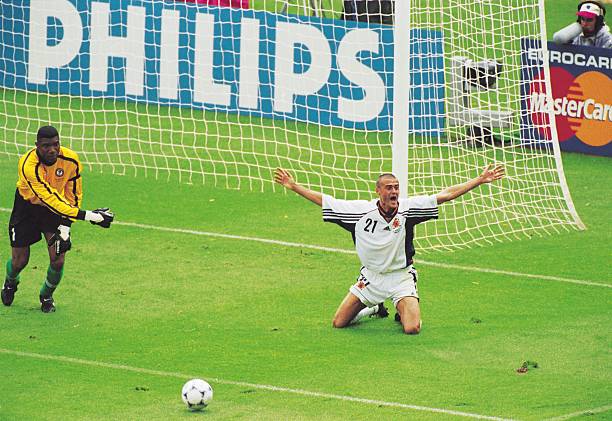
Key Players in Nigerian Football History
- Rashidi Yekini: Known for being AFCON’s third all-time top scorer.
- Jay-Jay Okocha: Renowned for his skill and creativity on the field.
- Nwankwo Kanu: Holds the record for the most AFCON tournament appearances by a Nigerian player.
- Victor Osimhen: Current star player and African Player of the Year 2023.
- Ademola Lookman: Recent African Player of the Year winner in 2024.
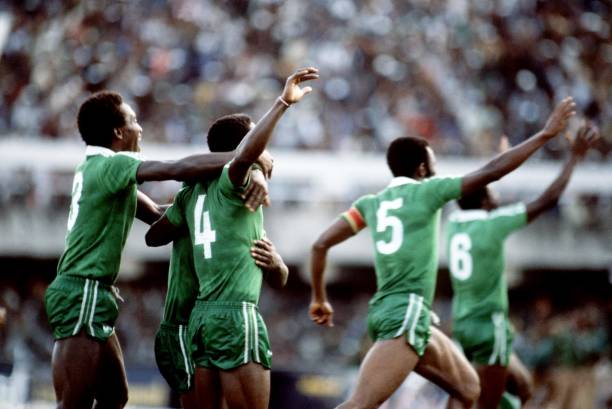
Current Challenges and Future Prospects
As the Super Eagles continue their journey, they face stiff competition in both AFCON and World Cup qualifiers. The team’s ability to adapt and evolve will be crucial in overcoming these challenges. With a strong squad and dedicated coaching staff, the Super Eagles are poised to make significant strides in the future, potentially securing a fourth AFCON title and solidifying their position as a global football powerhouse.
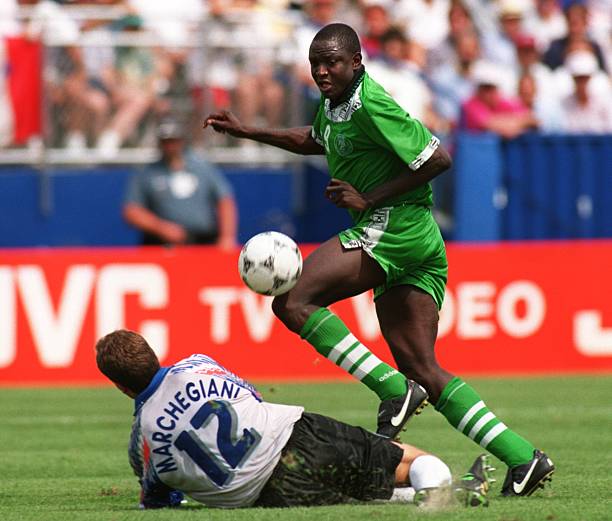
Conclusion
In conclusion, the Super Eagles’ rise to continental power is a story of resilience, talent, and dedication. From their early days as the Red Devils to their current status as one of Africa’s most successful teams, the Super Eagles have left an indelible mark on the world of football. As they continue to strive for greatness, their legacy serves as a beacon of hope and inspiration for future generations of Nigerian footballers.




